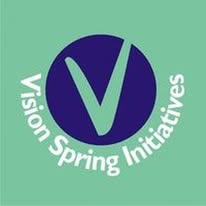The online civic space in Nigeria is increasingly under attack by governmental forces with limited understanding of digital platforms/media and how they function. This lack of awareness of digital platforms and how to best control them informs the government’s reaction to protest and advocacy.
The online civic space in Nigeria began to take shape in 2010, as the spread of digital platforms became apparent and knowledge of their use for civic activities grew. Opportunities in the internet space continue to promote implementation among numerous civil society organizations in Nigeria, which use it to organize and engage citizens. Digital technologies have become an essential component of CSOs’ abilities to collaborate, create awareness, and mobilize their communities.
The use of current and future legislative instruments poses a significant danger to Nigeria’s online civic space. Governments continue to impose legal and extra-legal restrictions on civil society in the face of a deteriorating larger political landscape. In addition, the government has used legislation such as the Cybercrime Act of 2015 to threaten and imprison online activists who are actively demanding accountability from the government. In recent years, there has been an increase in the use of legislation to silence young girls’ and women’s voices, impede civil society action, and imprison journalists who submit reports critical of the government.
Toxicity is a key feature of Nigeria’s online civic space, which is the result of the government deploying troll frames on the space. These trolls harass young women (online verbal abuse), sexually harass women human rights defenders, attack opposition figures and spread manipulated photos. These trolls represent the government’s strategy for stifling Nigeria’s online civic space.
Nigeria’s online civic sphere is subject to a variety of risks and challenges. While certain hazards and threats already exist, others are only beginning to materialize. Some of these risks and challenges are introduction of new legislation aimed at stifling and regulating online civic space, using troll farms to spread false information about activists and their messages and to discredit them, death threats, the arrest of journalists, online activists, and women human rights defenders, and more.
To secure the protection of digital rights and internet freedom for young women, human rights defenders and Nigerians at large, it is necessary for all stakeholders to work together to address the issue of the diminishing civic space online in Nigeria. There should be an intentional strategic planning, civic involvement, and engagements are important.
